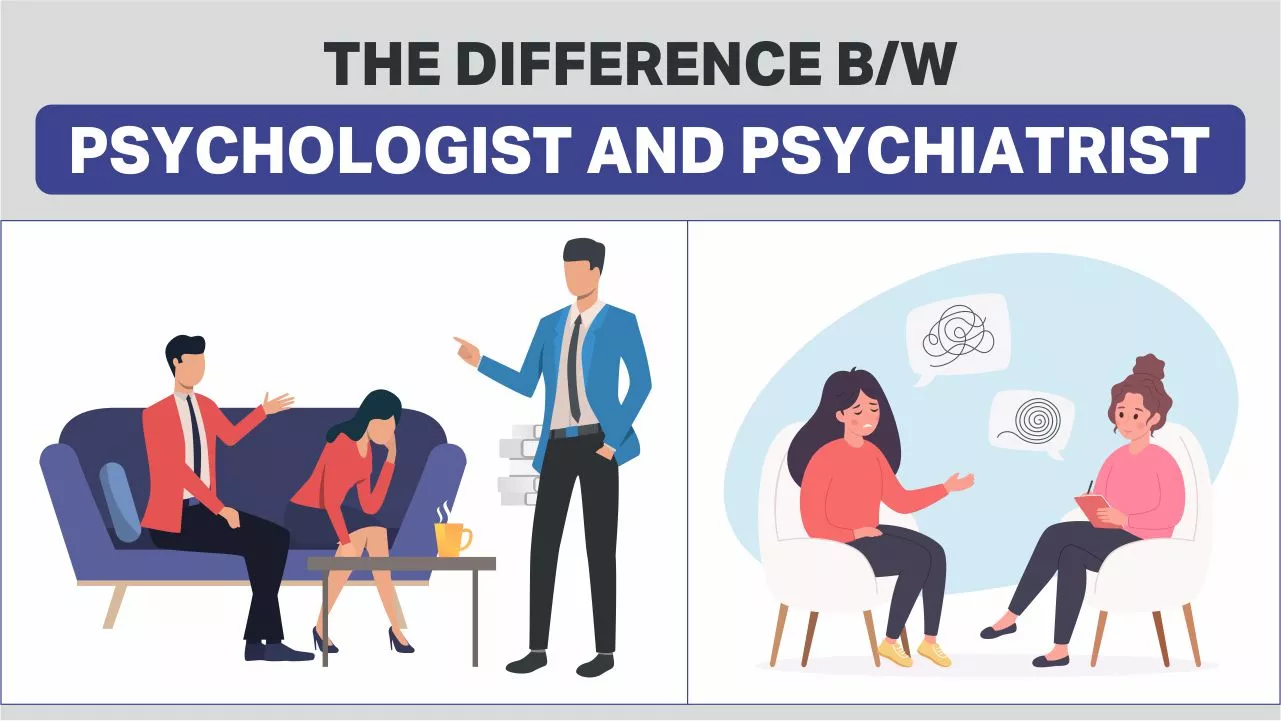Your Path to Healing: Insights from the Best Psychologist in Delhi
Your Path to Healing: Insights from the Best Psychologist in Delhi
Blog Article
The Function of Psych Therapy in Managing Anxiousness and Depression
Psychotherapy has emerged as a cornerstone in the administration of anxiety and depression, supplying customized treatments that range from Cognitive-Behavioral Therapy (CBT) to mindfulness-based strategies. These strategies not only help individuals in determining and reorganizing unfavorable thought patterns but also foster present-moment recognition, reducing the propensity to ruminate.
Understanding Anxiety and Anxiety
Recognizing anxiousness and clinical depression calls for a thorough appearance at these common psychological health conditions, which typically exist side-by-side and substantially influence a person's day-to-day life. Alternatively, depression manifests as a pervasive feeling of pessimism, emptiness, or sadness, frequently gone along with by a loss of interest in previously taken pleasure in tasks, modifications in appetite, and rest disturbances.
The conjunction of anxiety and clinical depression can worsen signs and symptoms and make complex medical diagnosis and therapy. People struggling with both problems might experience extra serious symptoms, higher problems in social and occupational functioning, and a much longer duration of disease. This comorbidity requires a nuanced understanding and technique to treatment.
Cognitive patterns like adverse reasoning and maladaptive actions can bolster these conditions. Comprehensive assessment by psychological wellness specialists is important to recognize the presence and extent of these problems, leading the means for customized therapeutic approaches.
Sorts Of Psychotherapy
Psychotherapy, additionally called talk therapy, includes a selection of treatment methods made to minimize symptoms of stress and anxiety and depression by dealing with the underlying psychological and emotional problems. Various types of psychotherapy are tailored to meet the distinct requirements of individuals, offering an array of techniques to mental healthcare.
One commonly used form is psychodynamic treatment, which concentrates on understanding and settling unconscious conflicts stemming from very early life experiences. By checking out these deep-rooted concerns, people get insight into their current habits and psychological state.
Social Treatment (IPT) is one more efficient modality that focuses on enhancing interpersonal connections and function to decrease depressive signs and symptoms. It usually attends to concerns such as sorrow, role shifts, and social disagreements.
Humanistic treatments, such as Client-Centered Treatment, emphasize personal growth and self-actualization. Best Psychologist in Delhi. These techniques develop a helpful setting where individuals can explore their sensations and establish a stronger sense of self
Lastly, Dialectical Habits Treatment (DBT) incorporates cognitive-behavioral strategies with mindfulness practices. Initially developed for borderline individuality condition, DBT has actually been adjusted to deal with anxiety and clinical depression by training skills in distress resistance, emotional law, and interpersonal efficiency.
These diverse psychotherapeutic techniques offer multiple pathways to psychological wellness and health, satisfying individual preferences and therapeutic needs.
Cognitive-Behavioral Therapy (CBT)
Amongst the numerous psychotherapeutic modalities, Cognitive-Behavioral Treatment (CBT) attracts attention for its organized, ambitious technique in dealing with stress and anxiety and anxiety. Developed by Aaron T. Beck in the 1960s, CBT is predicated on the idea that maladaptive thinking patterns contribute dramatically to emotional distress and behavioral issues. By recognizing and restructuring these negative thought patterns, CBT aims to reduce signs and foster healthier cognitive processes.
CBT is typically short-term, spanning 12 to 20 sessions, and entails a collaborative initiative between therapist and client. The treatment includes a range of methods, consisting of cognitive restructuring, exposure therapy, and behavior activation. Cognitive restructuring concentrates on testing and modifying altered cognitions, while direct exposure treatment slowly accustoms individuals to anxiety-provoking stimuli, decreasing avoidance behaviors. Behavior activation looks for to enhance interaction in rewarding activities to neutralize depressive states.
Empirical evidence emphasizes the effectiveness of CBT, with countless research studies showing its effectiveness in minimizing signs of stress and anxiety and clinical depression. This therapeutic technique has been adjusted for various populations and settings, showing functional and adaptable. Its organized nature, empirical support, and concentrate on ability procurement make CBT a keystone in the psychotherapeutic treatment of stress and anxiety and clinical depression.
Mindfulness-Based Techniques
Mindfulness-Based Methods have gathered significant interest over the last few years as reliable interventions for anxiety and anxiety. Rooted in ancient reflection techniques, these methods aim to cultivate a heightened recognition of the existing moment, which can assist people disengage from the ruminative idea patterns often connected with anxiety and depressive disorders.

Likewise, Mindfulness-Based Cognitive Treatment (MBCT) integrates principles from Cognitive-Behavioral Treatment (CBT) with mindfulness techniques. MBCT is especially reliable in stopping relapse in individuals with reoccurring clinical depression. By identifying early indication of depressive episodes, people learnt MBCT can use mindfulness techniques to mitigate the beginning of full-blown episodes.
Advantages of Psychotherapy
Numerous studies have demonstrated the profound advantages of psychiatric therapy for people grappling with anxiety and anxiety. Psychiatric therapy furnishes people with coping approaches to handle stressful feelings, thus decreasing signs of anxiety and clinical depression.
In addition, psychiatric therapy provides a structured atmosphere for self-exploration and insight. By Our site reviewing their experiences and sensations with an experienced therapist, individuals can discover underlying problems adding to their mental wellness battles. This self-awareness is a critical step towards long-term recuperation and strength.
Another substantial benefit is the improvement of social skills. Anxiousness and depression frequently stress partnerships, leading to isolation. With healing interventions, clients find out efficient communication and conflict-resolution abilities, which can boost their communications and foster have a peek at these guys encouraging connections.
In addition, psychotherapy offers a tailored approach to treatment. Therapists can adapt methods to satisfy the special requirements of each patient, making certain an individualized care strategy. This modification improves the effectiveness of therapy, advertising continual psychological health improvements. Eventually, the advantages of psychiatric therapy prolong beyond sign relief, adding to total health and top quality of life.

Verdict
Psychotherapy substantially adds to the administration of stress and anxiety and anxiety by supplying effective coping methods and a safe and secure atmosphere for self-exploration. Techniques such as Cognitive-Behavioral Therapy (CBT) and mindfulness-based methods contribute in identifying and reorganizing adverse thought patterns, while promoting present-moment awareness. These tailored treatments not just ease symptoms yet also boost emotional law and interpersonal abilities, therefore enhancing general wellness and lifestyle for individuals facing these mental wellness difficulties.
Psychotherapy has actually arised as a foundation in the management of stress and anxiety and depression, supplying tailored interventions that range from Cognitive-Behavioral Therapy (CBT) to mindfulness-based strategies.Understanding anxiousness and anxiety needs an extensive appearance at these common mental health and wellness conditions, which commonly exist side-by-side and dramatically effect an individual's day-to-day life.Amongst the different psychotherapeutic methods, Cognitive-Behavioral Therapy (CBT) stands out for its organized, goal-oriented approach in treating anxiousness and depression.Countless researches have actually shown the profound advantages of psychiatric therapy for people grappling with anxiety and clinical depression. Psychotherapy gears up clients with dealing approaches to take care of distressing feelings, thereby minimizing signs and symptoms of anxiety and clinical depression.
Report this page